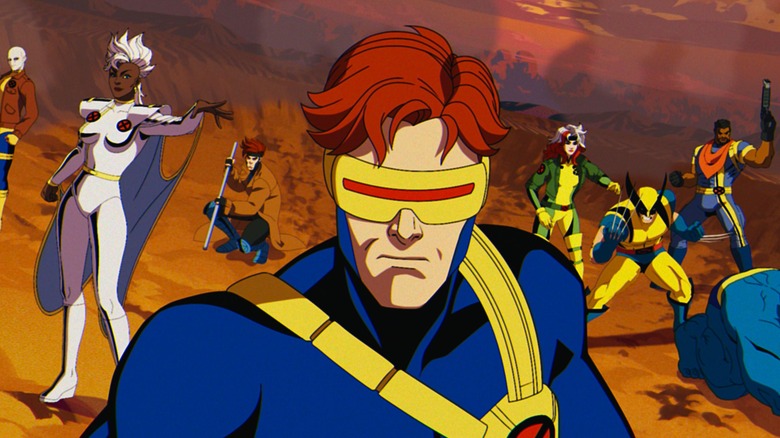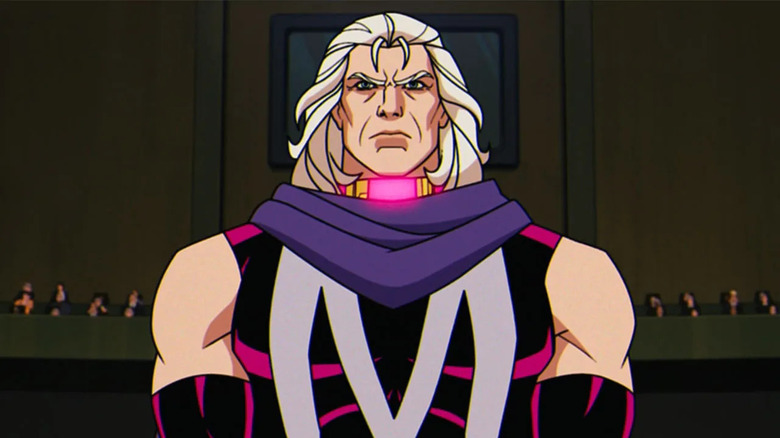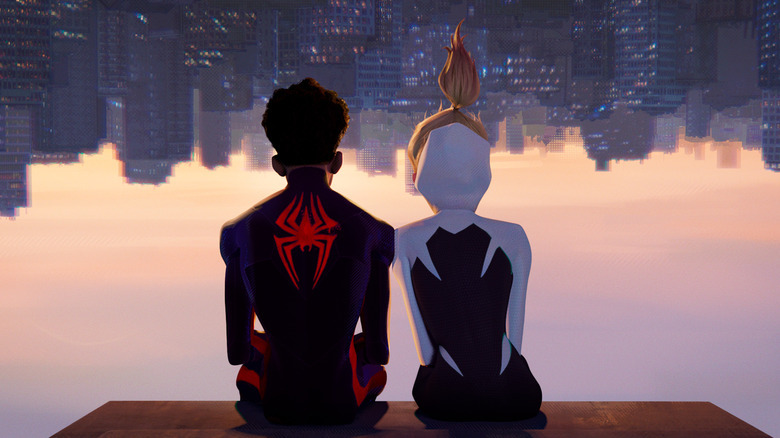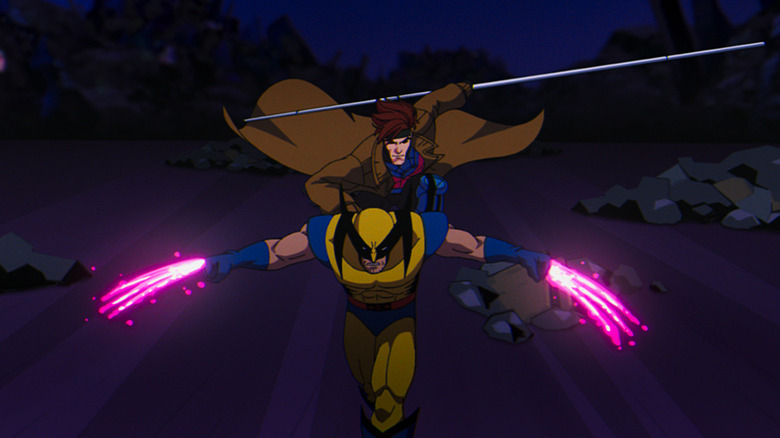The X-Men's Biggest Problem Makes No Sense (On The Surface)
It's been a while since the X-Men have been properly in the pop culture spotlight, but a new wave of mutant mania has recently begun. "X-Men '97" has received some of the highest praise a Marvel project has gotten in years, and we're finally closing in on the MCU releasing its own "X-Men" movie. That's all without even mentioning the highly anticipated return of Hugh Jackman's Wolverine in "Deadpool 3" later this year.
With Charles Xavier's team of superheroes returning to the public eye, it's only natural that people are also once again discussing what may seem like a fallacy within the "X-Men" universe. Though the team battles aliens, ancient beings, and classic supervillains, their most consistent enemy is humanity itself — or, at least, the bigoted sides of humanity terrified by the idea that mutantkind will replace them. "X-Men '97" focuses primarily on this conflict, asking, how does Charles Xavier's death help or hinder the progression of mutant rights? The apparent contradiction that some viewers continue to point out, though, is why mutants are so widely demonized in a world where other super-beings like Captain America and Iron Man are venerated.
It's a fair question, and one that the Fox "X-Men" films avoided entirely by setting their stories in a universe devoid of other Marvel characters. "X-Men '97," on the other hand, follows the comics by having mutants and other superheroes exist in the same world. The MCU's X-Men are likely to face a similar situation, but fortunately, this contradiction isn't actually as, well, contradictory as it might seem.
X-Men is filled with mutants, superheroes, and social metaphors
Since the inception of the "X-Men" comics in 1963, mutants have represented many different real-life marginalized groups. Different storylines told across comics, television, and film have evoked the Civil Rights Movement, struggles against antisemitism, and bigotry against the LGBTQ+ community. While the exact metaphor has never stayed consistent for long, all of these parallels share one thing in common. Mutants are the eternal 'others' in the Marvel universe — a scapegoat for fearmongers who warn of humanity being replaced.
This is central to the story of "X-Men '97," where the idea of replacement is regularly brought up by the villains. Mutants are powerful and therefore dangerous, they say. Allowing them equal rights and protections, according to the fearmongers, is the same as supporting humanity's extinction.
This is the main difference between how people view mutants in the Marvel Universe and how they view superheroes. Spider-Man is an anomaly — a freak accident that happened to an otherwise normal human. He might be seen as dangerous by the easily frightened residents of Queens, but in the public's eye, he poses no great existential threat to mankind. He doesn't embody a genetic shift that might one day cause the human population to dwindle or even go extinct.
Not every Marvel superhero has it easy
Even so, some non-mutant characters still face immense backlash from the general public. While most Marvel superheroes don't face the same kind of racial discrimination that mutants deal with on the daily, a number of them, like Spider-Man, are also ostracized. Spidey is regularly lambasted in the Daily Bugle and referred to by many as a public menace. Peter Parker and his multiversal variants are almost always being pursued by the police. The same goes for the Incredible Hulk, who often lives in shame of the dangerous power he holds.
Meanwhile, other heroes manage to escape scorn, and it's not very hard to understand why. Tony Stark can live publicly as Iron Man because, to most people, he represents the best of humanity, not a threat to it. It's easy to imagine the same characters who hate mutants talking about how regular folk still have a champion in Iron Man. And Captain America? Sure, you can be genetically mutated as long as you back the stars and stripes. We hate the 'other,' but we love the military, right?
The MCU's impending X-Men dilemma
As outlined above, the supposed contradiction in how the Marvel public treats the X-Men compared to other superheroes isn't really an issue. Mutants represent something entirely different and, to the prejudiced mind, more threatening. It's still a bit odd that people in the Marvel universe don't just call every superpowered individual a mutant, but that's beside the point.
Still, balancing the complex sociopolitical world of the X-Men with other major Marvel characters and storylines can be challenging. Fox kept the mutants in their own film universe because of rights limitations, but it ended up working out because it made things simpler. As Marvel Studios prepares to introduce its own, new version of the X-Men — not Wolverine's return in "Deadpool 3," but a proper, fully recast iteration — Kevin Feige and company have some big decisions to make.
Because mutants as a major race don't exist in the main MCU reality, many have theorized that the X-Men will be introduced through some parallel world. And, depending on what Marvel intends to do with them this time around, it might make the most sense to keep them there. Aside from complicating the balance, the X-Men will add a lot of characters to the current mix. The population of active MCU characters could effectively double when they're brought into the fold, and that might just be too much to juggle in a single dimension. Time will tell how Disney ultimately decides to handle the MCU's "X-Men" reboot. But after the response to "X-Men '97," expectations are higher than ever.



